

Myth in movies: Deciphering Hollywood’s hidden messages
As mentioned in last quarter’s column, there have been a lot of “life-as-illusion” themed movies coming out lately. While I suspect that the success of Avatar and Lost are partly responsible for this trend, I think people’s fascination with 2012, drastic world changes, and a surge in our search for meaning are also fueling the recent string of films about alternate realities and simulated worlds. When airplanes are crashing into buildings, cities are submerged underwater, the Middle East is revolting, and the world economy is collapsing, real life almost seems more fantastical than our dreams. Jon Stewart summed it up perfectly at the 2008 Academy Awards: “Normally, when you see a black man or a woman president, an asteroid is about to hit the Statue of Liberty.” Yes, we are now officially living in the future, and we all know what kind of stuff happens in the future—exactly the kind of stuff that’s happening right now. But at least, thanks to Hollywood, we’ve been warned. And Hollywood’s heads up may even go much deeper than prophesies of events to come. They may help explain the reality we all find ourselves in.
Living in these times is very surreal. Our current lives were the stuff of science-fiction just a generation ago. Shows like The Jetsons, couldn’t even imagine the concept of email, so the space-age family received their paper mail by pneumatic tubes instead; Dick Tracy had a phone in his watch; James Bond gave audiences their first look at remote controls, pagers, and pocket-sized voice recorders; and nanobot technology explored in such sci-fi as the X-Files is is currently being tested for medical applications and more. So if Hollywood was pretty close or even dead-on in bringing up these seemingly far-fetched ideas, what are we to make of the most recent string of films that demonstrate how we will be able to zap ourselves into other realities? Films like Avatar, TRON: Legacy, and Source Code illustrate some fascinating uses for technology. And they also bring up some interesting questions about what, if anything, is really real?
If a baby spends it’s entire life as an avatar of a being on another planet, was that experience real? What if you were downloaded into a videogame world, or plugged into an alternate reality to help prevent a terrorist attack? Which aspect of you is real, if either? While these concepts make great fodder for philosophers and futurists, for me, I am most intrigued by what they seem to be telling us about our world right now. In addition to the films listed above, Hollywood has provided a plethora of movies such as Inception, The Adjustment Bureau, Sucker Punch, and Limitless that allude to other realities that are going on behind the scenes. Much like Inception, these myth-movies can be deciphered on a bunch of different levels.
I can watch Limitless and initially be entertained by a story about a struggling writer who takes a pill to increase his brain function and winds up becoming one of the most powerful people in the world. If I look deeper I may see it as hint to our brains’ hidden potentials. Looking deeper still, I may see it as a warning about the abuse of technology and class. According to the brilliant inventor and futurist Ray Kurzweil, in the near future, we may all need to get brain upgrades or implants just to be able to keep up with the rapidly changing world. Of course, not everyone will have access to this technology. Those who aren’t among the privileged therefore will fall even further behind as the gap between the classes stretches to epic proportions. The “Haves” will get the brain upgrades and be able to successfully compete in society. The “Have Nots” won’t, and will eventually be relegated to the status of workers, slaves, or even animals. (Both X-Men and The Planet of the Apes also work off of this theme, and interestingly, the prequels to both films will be out this summer).
In The Adjustment Bureau, Matt Damon’s character discovers that life on earth is manipulated by a clandestine group of agents following an overall plan of their executive and chief. Is this a story about God and angels? About the programmers of our simulated world? About the secret societies that manipulate oil prices and provoke wars? About your life and the series of coincidences that seem to guide you to some predetermined destiny? The answer to all these questions, is “yes.” The movie applies to many truths of our world just as most myths do. These truths all seem to fit into some kind of general rule or template, with the difference only being in the details. It’s almost as if every event in our world is a take on an overall grand theme—different versions of the same story again and again. Not only does this repetition of themes happen in our world, it happens in our stories as well. (For a darker take on the exact same theme as The Adjustment Bureau—including the mysterious men in Fedora hats—I highly recommend Dark City.) In truth, most myths are simply updates of stories that came before, just as the events of our world are updates of previous events that happened before: the collapse of the banks that were too big to fail was an update of the sinking of the unsinkable Titanic which was an update of the fall of the mighty Tower of Babel. Once you realize that the series of steps that make up a movie also make up much of our lives, you can begin to use this information to help you on your journey. This wisdom in and of itself is demonstrated in another recent life-as-illusion movie, Sucker Punch.
In Sucker Punch, a young girl is institutionalized by her abusive stepfather, and begins to have delusions of living in an alternate reality as a coping mechanism. The mechanism helps her to do more than cope, but work out an escape from the corrupt mental institution. So her dreams can be thought of as the movies, and her life as your life. One of the messages of the movie therefore, is that you can use the wisdom found in films to help you in your life. And that the specific movies you choose to see, are designed to work sequentially to help you through what you are going through in the moment you view them. The movie I saw before Sucker Punch just happened to be The Runaways, about Joan Jett’s rocker grrrl band she was in before going solo. The theme of kick ass chicks definitely fits into both films, but the real connection for me came in the name of a plane in Sucker Punch—Cherry Bomb—the first hit for The Runaways. After I noticed that during the film, I whispered to my fiancée that there would probably be a link between Sucker Punch and the next film we were about to see—Limitless. Shortly after Limitless began, she noticed that both films shared the same actress. Despite looking very different in the two films, Abbie Cornish kept the connection going. My takeaway was that all these stories fit together into some kind of personal instruction manual. Show me the exact order of movies and stories that someone has experienced over the course of their life, I’ll show you that person’s destiny and the challenges and successes they had on their path towards achieving it.
At the start of my first film class during my freshman year in college, the professor warned us that we would never again be able to simply just watch and enjoy a movie. Obviously, I didn’t heed his warning, but I definitely prefer the insights that the class and the school of life have given me. These insights apply not just to the way movies can be interpreted, but all stories—including those of the Bible. As I wrote in one of my Lost In Myth columns, there are four different perspectives from which the Bible (particularly, of the Old Testament or Torah) is traditionally studied and interpreted. These four levels are the literal, metaphoric/parabolic, searching, and hidden/secret level. To demonstrate how much mythological meat a typical life-as-illusion film can provide, let’s examine one of this year’s better movies with this theme using these four levels.
From a literal perspective, Source Code is an action flick about a soldier who finds himself in another man’s body as part of a secret government mission to uncover the bomber of a Chicago commuter train. We quickly come to learn that the train has already been destroyed but that the soldier, Colter Stevens played by Jake Gyllenhaal, can be continually downloaded into an alternate reality before the train exploded in order to find clues as to the identity of the bomber. The majority of movie critic reviews focus on this level—the plot, story, characters, etc. Also, the majority of Evangelicals interpret the Bible from this perspective. In my opinion, they are missing three-quarters of the message.
From a metaphoric or parabolic (allegorical) perspective, the movie brings up all kinds of interesting questions about the morality of technology, messing with people’s lives and free will, as well as questions about fate and the possibilities of alternate versions of our reality. Looking deeper into this perspective, a train can be seen as representing time, our lifetime, or our destiny. It chugs along a certain path, continually moving forward. And along the way, certain people get on and off—coming in and out of your life. Those in closest proximity to you will likely have the biggest effect on your personal voyage, while the hidden elements of your ride—the engineer, the system that assigned your seat, those who designed, built, and maintained the tracks, have the greatest impact on your overall journey.
In the film, Stevens is told to try and ignore the distractions of the people on the train in order to fulfill his mission. This is a metaphor for how we often get caught up in the trivial elements of life and miss the big picture of our life’s purpose. Often times, it seems as though these day-to-day distractions are put in our way to give us something to overcome—a challenge to rise above so that we may grow and do what our soul truly wants us to do. Our destiny is the ultimate result of us overcoming these obstacles, giving us the strength we need to fulfill our final mission. The fact that it’s a lot like a videogame, where you must overcome obstacles to defeat the toughest opponent at the end of the level, is no accident. Even our videogames are full of useful wisdom. In fact, instead of these life challenges being for the good of our soul, perhaps we were put into a simulated world so that our real-world selves could grow in a controlled environment. Different details, same overall message—one that’s illustrated in a way we can understand, at least subconsciously, thanks to this movie.
Once you are open to viewing our world as some sort of simulation, created to help us work past our challenges, millions of other possibilities arise. What if the myth of angels is actually about avatars of beings from outside the game who help guide us through it? I’ve had many experiences that have had me wondering about this. Recently, I saw a homeless man downtown that I usually see by the subway station near my Upper East Side apartment. Most homeless people are pretty territorial, so I thought it a bit strange. I was all the way by Wall Street and he just happened to be at the subway exit I was getting out from. I said “hello,” since we sometimes talk but he didn’t seem to recognize me. An hour later, I was returning to the station on the other side of the street to go home, and the same man was on the platform on that side now. We had a brief conversation and he now remembered me. In those brief minutes, he brought up some perspectives I hadn’t thought of before and then I took the train to go to work. That was at 11AM. At 7:30PM, I was heading home. I had just made the local train as the doors were closing at 33rd Street and slipped out through its closing doors again at 42nd Street just as the express train pulled into the station. I got on the train and moved to the corner and looked down. There, in front of me, was David—the homeless man I’d seen twice earlier. He was sleeping but I tapped on his knee. He slowly opened his eyes and upon seeing me, gave a knowing smile. He got off at the same station as me and we went our separate ways. I offered to buy him a hot dog but he had declined. Since becoming homeless, I’d say he’s gained about fifty pounds. Perhaps I should’ve offered a salad.
In a related story, just yesterday a handicapped man in a wheelchair stopped me as I was jogging to the park. He asked if I could wheel him there. I did. His name was Dan and he told me he had a Ph.D. in psychology and was working on an autobiography, which, he added, was a very interesting story. He reminded me of physicist Stephen Hawking and with his two hearing aids, slurred speech, and arms awkwardly bent, seemed to be suffering from a similar, debilitating disease. When I got him to the park, I wheeled him over to a section near the park benches. As I stretched out, I kept an eye on him, wondering what he was going to do. He was pretty much just sitting there, slightly moving back in forth to the best of his ability. I began to wonder if I had possibly just inadvertently kidnapped this man. Perhaps he was making a break from his caretaker or nurse. I thought I’d walk over and ask him his plans. But when I looked over again, he was gone! I quickly scanned the area. Had some volunteer offered to push him around the outer path? I looked on the path, but he wasn’t there. I’d only looked away for a minute at most! There was no way he could’ve stopped someone, explained the situation, gotten them to push him off of the dirt area and onto the path, and be out of range in that time. Had he just vanished? Was it a test? How did I do? I keep expecting to see missing posters of the guy on mailboxes in my area. Either that, or some report about how the guy had actually died a week before I’d met him. Perhaps I’ve watched too many Twilight Zones. I prefer to believe he was an avatar or angel, sent to give me a little nudge—a slight correction to help me get out of my me-zone and reach out to someone else. Sometimes, a slight turn of the wheel is all it takes to avoid hitting an iceberg. Assuming you do it early enough.
One more story to add. Just this morning, I was awoken at 8:21AM by an Angel. Angel Rodriquez apologized for having the wrong number, but I don’t believe in accidents. Having written most of this column the night before, perhaps it’s just the universe, the powers that be, or the beings outside of the simulation having a bit of fun, or providing some sort of confirmation. Of course, all these strange events could be originating from me somehow, and being that they usually fit my quirky sense of humor, I’ve suspected as much. In last quarter’s column, I wrote that, “We are subconsciously giving ourselves the clues that are sprinkled throughout our lives because our souls—or future versions of ourselves—already know the path we are meant to follow.” Plug in the metaphor of a simulated world, and the clues can be originating from the program itself, the programmers, or our own subconscious minds as they exist outside of the program. If we are in this program against our will, perhaps we are attempting to wake ourselves up. If we are there by choice, perhaps we are attempting to help ourselves succeed. Either way, so far, these clues have helped me on my path so I will continue to pay attention to them. The more I do, the more I seem to get. If nothing else, I feel that they make life more interesting—kind of like a fun puzzle or mystery we’re meant to solve. As part of the Scooby-Doo, Encyclopedia Brown, Choose Your Own Adventure, Myst, and Lost generation, somehow, I bet there are many others who enjoy solving the clues too.
Getting back to the four perspectives, we come to the third one—the searching perspective. This view requires outside references. In Source Code, there’s a line about how sometimes it’s easier to rebuild from rubble than to fix problems that have gotten too severe. And of course, to get the rubble, you have to destroy what you have. The scary thing is when it’s society you’re talking about, and scarier still when you can see the logic in this perspective. There is a lot of talk of end times and apocalypse lately. Personally, I’m not in the camp of world destruction for 2012 or anytime soon. However, I do feel like we are going through a major change, and that many people aren’t going to be able to adapt. My feeling is that those who value themselves based on what that own, rather than who they are, are going to have a hard go of it during the upcoming years. While I don’t think society or the world will be destroyed, I think the way of life we’ve gotten used to will be. But then, in its place, a much more productive one will arise. Mythology is full of the theme of things breaking down only to become stronger. There’s the phoenix, Jesus Christ, just about every hero’s journey including superheroes, the rebuilding of the Holy Temples, etc. It’s a theme that makes up the story of humanity, and one that I think we’ll see repeating for our society very soon. Source Code shows us how we are all traveling on this journey together, and our journeys may be cut short. We may see what seems like needless destruction, but it may turn out to be for a greater good. Even if you or I don’t survive the changeover.
The name of the film itself is also a tipoff. Source Code reminds me of the Bible code—the word search-like system of hidden messages in the Bible that contain messages related to the stories from where they are found. Some mystics believe that the sequence of letters in the Hebrew Bible is a literal code for the program of this world. If a binary code of 1s and 0s can reproduce every movie you’ve ever seen, what could a code of 22 Hebrew letters create? Perhaps the reality we find ourselves in, with its repeating themes and cycles within cycles. In many ways, Source Code can be seen as the story of our entire reality—a game with a program that allows for any action as long as it has been written into the code. So we live in the reality we notice, but every time we make a decision, we leap into another where everything is exactly the same except for the one aspect we changed and the repercussions that result from it—repercussions that could have effects we aren’t even aware of. This idea is the stuff of quantum physics and applies in theories about many worlds and mutiverses that I’ve discussed in other columns. But the fact that these relatively deep concepts are now showing up in mainstream movies, is telling of how we are evolving and the level of information we are growing to be able to handle. Whether you are conscious of it or not, shows like Lost and movies like Avatar, Inception, and Source Code are all helping us to understand how the world may really work.
Finally, we reach the fourth level of interpretation: the hidden/secret level that is derived from mystical, kabbalistic techniques. Unfortunately, I am not learned enough in the wisdom of kabbalah to do this movie justice from this level. But one area of the teachings that I am familiar with is the idea of “as above, so below.” This relates to the belief that everything that happens in our realm, is reflected in a realm beyond this one. Call it heaven, an alternate reality, the code of this programmed world, or whatever, but nothing can happen here, that doesn’t also happen there, and vice-versa. For a movie like Source Code, you could have a field day with plugging this movie into that perspective. The basic premise alone is chock-full of implications, but especially the film’s takeaway. Sort of like kabbalah, I can’t talk much about this level of the film because it requires giving away some spoilers, but once you’ve seen it, I’m sure its overall concept will give you much to think about…or not, if you just watch movies to be entertained. Considering that you made it this far into the column, somehow, I doubt that is usually the case.
So, once you become like me, and can no longer simply enjoy movies without looking at their deeper meaning, can you ever go back to the bliss of ignorance? The answer is no. Much like the hobbits at the end of The Lord of the Rings, the adventure changes you, and you begin to hear a greater calling. One that is no longer satisfied with just the trappings of the material world, and instead, longs for deeper meaning. Of course, the higher your potential, the harder the challenges will be needed to take you where you need to go. And if you haven’t fully let go of your old life, your new one will be challenging indeed—much like society as a whole in the years ahead.
In M. Night Shyamalan’s The Last Airbender, the character of Aang (the last airbender) runs away after learning that to fulfill his destiny he must give up ever having a family or even any kind of love. It’s a story similar to most superhero myths, and often, the story for those who chose to sacrifice themselves for the greater good. On a more personal scale, it’s our story when we sacrifice having a family for our passions, a career for our kids, more money for more fulfillment, our ego for our instincts, and our holiday weekends for what we believe to be our calling.
May your inner spark grow to light your way,
Marc
Marc Oromaner is a New York City writer whose book, The Myth of Lost offers an alternative solution to Lost and uncovers its hidden insight into the mysteries of life. He can be contacted in the discussion section of The Myth of Lost Facebook page or on his blog The Layman’s Answers to Everything.
The Myth of Lost is available on Amazon and barnesandnoble.com.
Latest posts by Marc Oromaner (Posts)
- The long lost instruction book to the game of life - June 24, 2014
- Warning: Spirituality can be hazardous to your health & wealth - April 17, 2014
- Was 2012 an epic fail? - December 30, 2013
- 5 steps to uncover your destiny - September 20, 2013
- Evolution has been in The Bible all along - August 18, 2013
 Print This Post
Print This Post

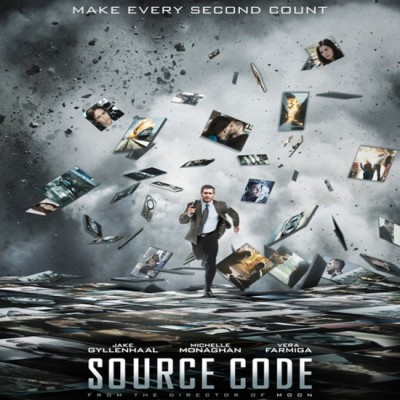
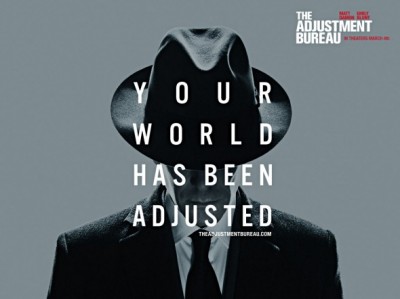
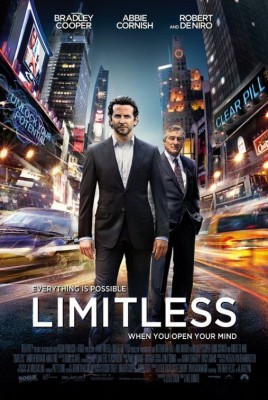
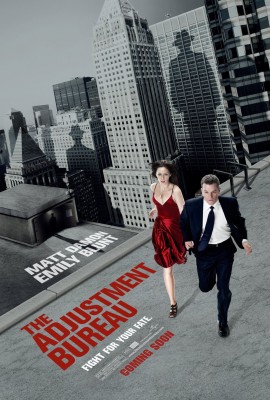
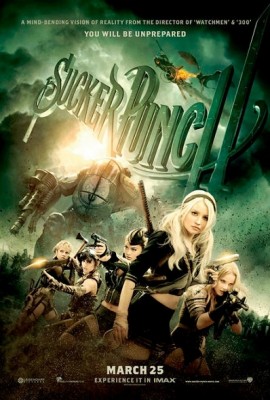
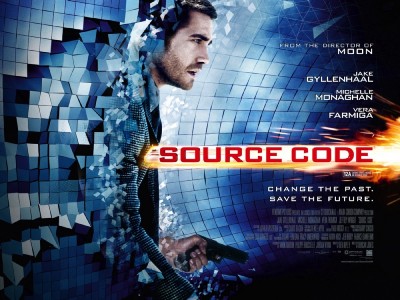


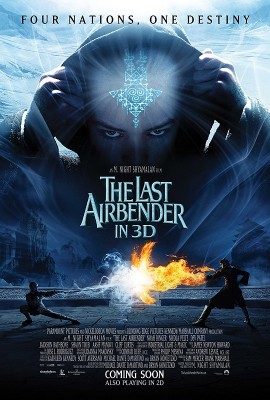



Discussion Area - Leave a Comment